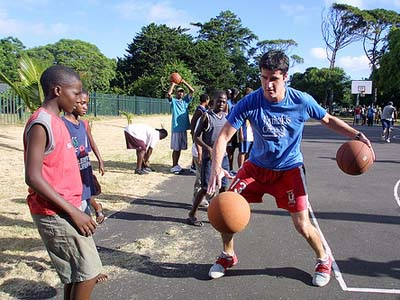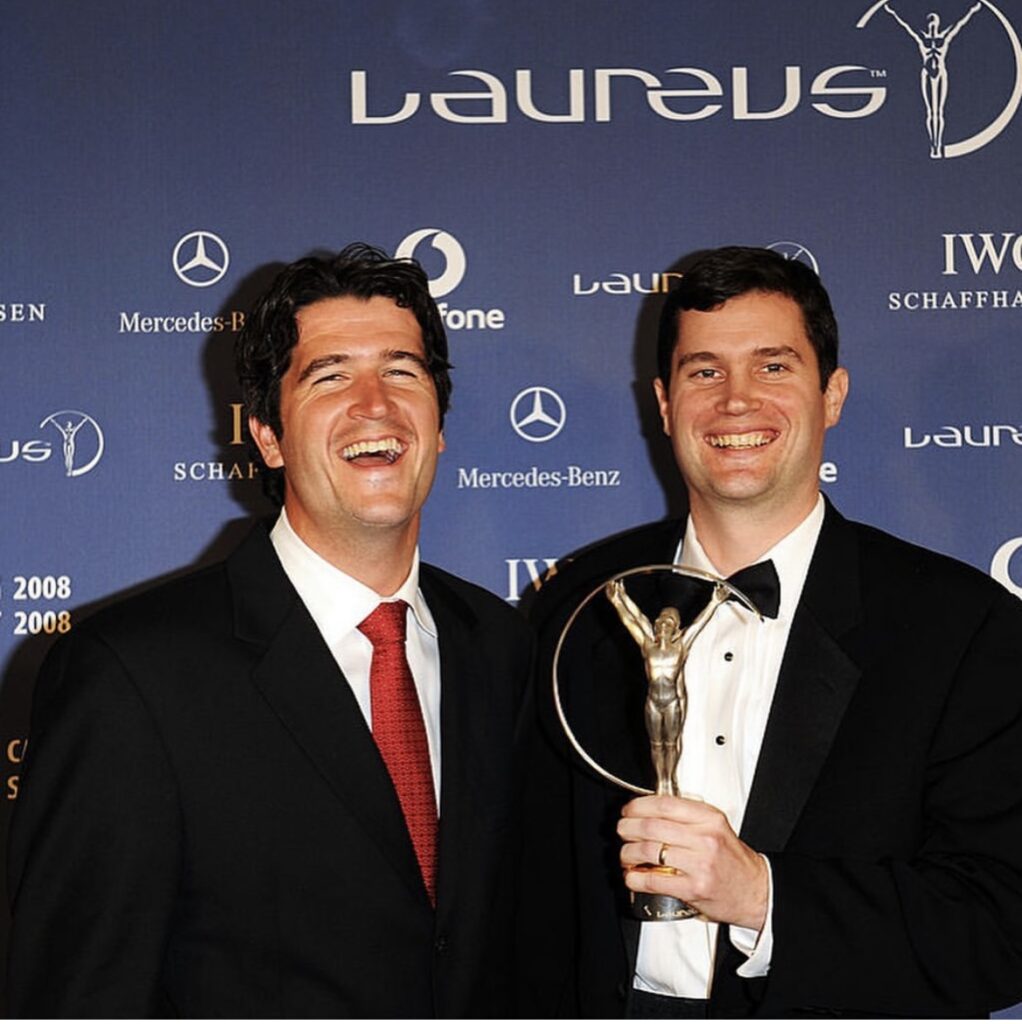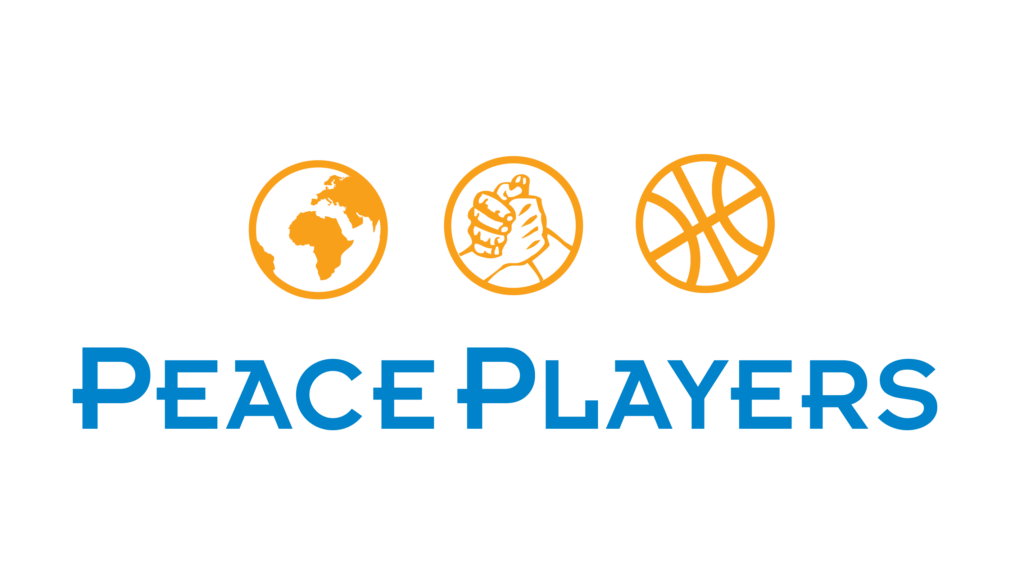How Playing for Peace All Started
Sean tuohey
July 31, 2023
SHARE
Sean Tuohey is not your typical founder. He is willing to travel anywhere and go to the furthest extent to see his dreams become a reality. His persistence in bringing his ideas to life led him to create what we now know as PeacePlayers. But let’s take a step back to the year 2000 and
forget the name “PeacePlayers.” For now, let’s stick with the name “Playing for Peace,” the organization’s original name.
In 2001, “Playing for Peace” was born in South Africa. After university, Sean found himself in Northern Ireland. He found out about Durban after living in Northern Ireland and attempting to start a basketball program there. In Northern Ireland, “the sport didn’t gain traction early on,” says Sean. However, a police chief Sean met while in Northern Ireland understood his affinity for connecting

kids through a game that gave him so much life growing up. He suggested that Sean’s idea could work in South Africa, a country less than a decade beyond its darkest years of apartheid. This police chief connected Sean with a police chief in a coastal city named Durban.

After a call with Durban’s police chief, Sean was directed to someone at Albert Park’s YMCA who shared Sean’s vision of introducing basketball as a bridge to connect kids in conflict areas. With the shared excitement for basketball and the idea that he could surf any time of the year, Sean hopped on a plane to explore the unknown in Durban. Upon landing, he moved into Pasadena Court in the Central Durban Area.
Sean soon worked with the local YMCA to develop a community basketball team of 3rd and 4th graders called the Albert Park Rough Riders. Simultaneously, Sean expanded his basketball circle, meeting players and coaches from other communities. He met a few friends at Durban University of Technology (DUT). Vusi Khumalo was Sean’s first introduction to, and first friend from DUT and Umlazi. Thabani Nkosi was another friend that came along soon after. They all shared a passion for the game. One day, Vusi and Thabani called Sean and told him to come to Umlazi, Section M.
Through Vusi and Thabani’s connections in Umlazi, Section M, they began to use 3 or 4 basketball courts as the primary area to run programs. During their first event in Umlazi, Sean recalls all three of them on the phone with schools, concerned that the kids wouldn’t show up because they were so late in arriving.
“We soon looked up to see over 200 kids walking towards us, ready to play basketball.” They stood tall, prepared to facilitate with frisbees and tennis balls for team-building stations. Programs in Umlazi trended upward from this point forward. Between games, Sean vividly recalls seeing the Umlazi coaches bringing DJ’s while the kids would break out in dance competitions. It wasn’t just basketball, it was an entire vibration of unparalleled energy, flowing through everyone present. Today, Sean refers to Umlazi as “the heartbeat of the entire global organization, not just South Africa.”
A strong group of 13-14 Durban University of Technology (DUT) students were “the majority of the workforce” before the organization became “official” in 2001, Sean says. Devin Tuohey, Sean’s brother, and Keith Urgo, a family friend, would visit South Africa on university holidays to support the informal “team.” Thibault Manekin came in one year and a half later, in 2001, with the business acumen they were seeking to push Playing for Peace forward as a fully registered, established, and recognised non-profit organization in South Africa.
After approaching schools in the City area, such as Addington Primary, St. Anthony’s Primary, and St. Augustine’s Primary, a collection of twenty-somethings started a 3rd- and 4th-grade league at Albert Park. Schools wanted a new sport, and the young adults wanted to share their love for the game through coaching. Coaches were proud to be a part of something that felt natural, and the organization excelled.
The young staff eventually approached Morningside Primary, their first white school. Sean remembers the local white community being “difficult to [involve in the program] at the time” because they were so closed off and unwelcoming to other races. He recalls Playing for Peace being able to “operate six black or coloured (the official term in South Africa for people of mixed racial heritage) schools with the amount of energy it took to get one white school in the program.” However, other white schools, like Clifton and Glenwood, would soon understand the vision and join the program.
Community partnerships in the City, Umlazi, Glenwood, and Morningside were pivotal in the early growth stages of the organization. Soon, Playing for Peace would employ over 70 coaches. And many more pivotal figures would come aboard during Sean’s tenure in SA. One important figure, Thibault Manekin, who is considered a Co-Founder, had this to say about Sean: “My job, and all of you guys’ jobs were made easy because somebody took that first step, and I’ll never be able to thank Sean for bringing me along for the ride early on. I’ve seen this guy in hectic situations and I don’t think like fear exists in it, I don’t think it’s a word he knows and because of that, the program’s worked in 22 countries, tens of thousands of kids, thousands of coaches and volunteers, and we we’ve got Sean to thank for starting down that journey.”





